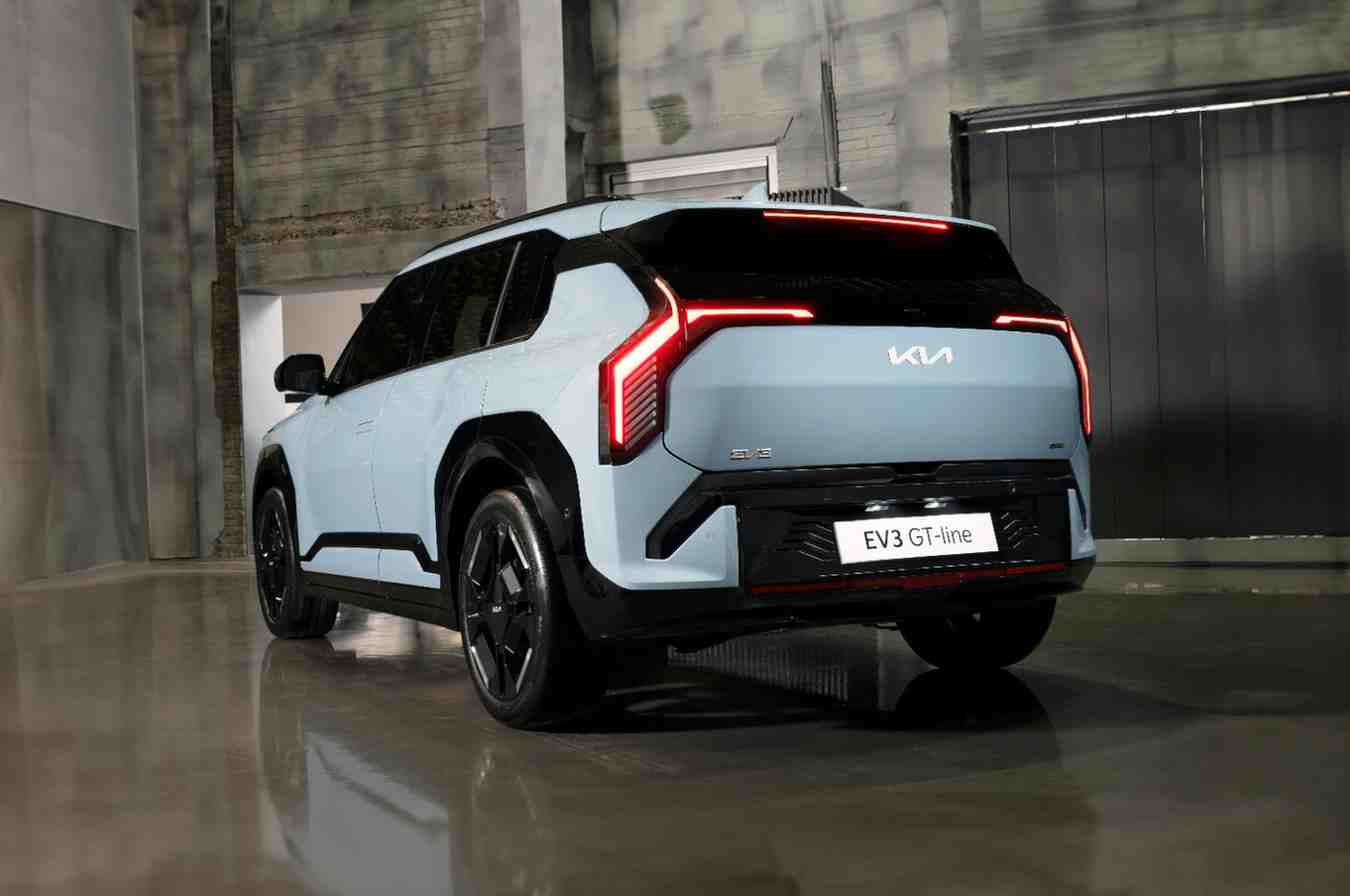Your cart is currently empty!
Blog

MyFastBroker Insurance Brokers guide to easy insurance
MyFastBroker Insurance Brokers is a company that helps people find the best insurance for their needs. Unlike many other brokers, MyFastBroker works with multiple insurance companies, offering clients a variety of options to choose from. The goal is to simplify the insurance process, making it less stressful and more affordable. Whether it’s for home, auto, health, or business insurance, MyFastBroker provides personalized assistance to ensure clients get the right coverage.

Why Choose an Insurance Broker?
Navigating the world of insurance can be confusing, especially with so many different plans and companies to consider. MyFastBroker Insurance Brokers takes the guesswork out of the process by comparing multiple providers and offering expert advice. This not only saves time but also helps clients secure better deals than they might find on their own. Instead of contacting different companies individually, MyFastBroker does all the legwork, providing a one-stop solution.
Services Offered by MyFastBroker
Personal Insurance
MyFastBroker assists with finding the best health, auto, home, and life insurance policies. For example, one recent case involved helping a family reduce their auto insurance costs while also improving their health coverage. MyFastBroker was able to save them money without sacrificing the quality of their insurance.Business Insurance
For business owners, MyFastBroker offers a range of commercial insurance services, including property and liability insurance, workers’ compensation, and industry-specific coverages. A small business owner was recently able to secure affordable coverage for their shop, ensuring their livelihood was protected against unforeseen events.Additional Services
In addition to offering various types of insurance, MyFastBroker provides assistance with filing claims and regularly reviews policies to ensure clients are still getting the best possible rates.Fast and Simple Service
MyFastBroker is known for its quick and easy service. The process of finding insurance is streamlined, so clients don’t have to worry about spending hours comparing plans. MyFastBroker works with multiple insurance providers, allowing clients to explore a variety of options in one place. The brokers at MyFastBroker are experienced professionals who guide clients step by step.
In one instance, a client needed health insurance quickly because their previous plan was about to expire. MyFastBroker was able to find a new plan that suited their needs within days, saving both time and money.
How MyFastBroker Works
The process at MyFastBroker follows four simple steps:
Step 1: Initial Consultation
The first step is to understand the client’s insurance needs. This could involve a phone call or an online consultation, where a broker will ask questions to assess the situation. Recently, a client was unsure about life insurance options. After a quick conversation, the broker was able to explain the different choices available, making the process clearer.Step 2: Customized Options
After understanding the client’s needs, MyFastBroker searches for policies from multiple companies. The options are then presented in a way that’s easy to compare, helping clients choose the best one for their situation.Step 3: Policy Selection and Purchase
Once the client has chosen a policy, MyFastBroker handles the rest, ensuring the insurance is set up quickly and securely. For example, a client recently needed insurance for a new car and was able to get coverage in less than an hour through this streamlined process.Step 4: Ongoing Support
Even after a policy is in place, MyFastBroker continues to support clients by offering reminders for renewals and assistance with any claims. When a family recently needed to file a claim for storm damage to their home, MyFastBroker ensured that the process went smoothly.Also Read: Harley Davidson insurance
Success Stories and Testimonials
MyFastBroker has a long history of helping clients find the right insurance. One example involves a single parent who was struggling to afford both health and car insurance. MyFastBroker was able to help them lower their premiums, allowing them to keep both policies without financial strain.
In another case, a bakery owner was concerned about what might happen if their business was affected by a fire or theft. MyFastBroker helped the owner find an affordable business insurance plan that offered full protection.
What Makes MyFastBroker Stand Out?
Personalized Service
MyFastBroker is dedicated to understanding each client’s unique needs, offering tailored insurance options rather than a one-size-fits-all approach.Expert Knowledge
With years of experience in the insurance industry, MyFastBroker has the knowledge and expertise to find the best policies for both individuals and businesses.Wide Range of Options
By working with many insurance companies, MyFastBroker is able to offer more choices than brokers who are limited to a single provider.Ready to Get Started?
For anyone looking for fast and easy insurance solutions, MyFastBroker is ready to help. Whether it’s for personal or business coverage, MyFastBroker offers tailored insurance options from multiple providers. Contact them today for a free quote and get started on finding the best insurance for your needs.
In Short
MyFastBroker Insurance Brokers takes the stress out of finding the right insurance. By offering expert guidance and multiple options from different companies, they ensure that clients receive the best coverage at the best price. Whether for home, health, auto, or business, MyFastBroker is committed to providing fast, personalized service every step of the way.
FAQs
- Is using a broker more expensive?
No. In fact, MyFastBroker often helps clients save money by finding the best deals from multiple providers. - How long does it take to get insurance through MyFastBroker?
In most cases, MyFastBroker can find and set up insurance in just a few days. - Can policies be changed later?
Yes, MyFastBroker can assist clients in switching to different policies if their needs change or if a better deal becomes available.
- Is using a broker more expensive?

Harley Davidson Insurance simple guide to protecting your ride
If you own a Harley Davidson or dream of riding one, you’ll want to make sure it’s protected. Harley Davidson motorcycles are special, and so are the people who ride them. That’s why getting the right insurance is so important.
Let’s walk through what Harley Davidson insurance is, why it’s important, and how it can help you keep your bike safe.

Why Harley Davidson Insurance Matters
Harley Davidson bikes are more than just motorcycles—they’re a lifestyle. Owning one can feel like being part of a family. But these bikes are expensive, and many Harley owners like to customize them with special parts. Regular motorcycle insurance might not cover all the unique features of your Harley. That’s where Harley Davidson insurance comes in.
It’s designed to meet the needs of Harley owners, so whether you’re cruising down the highway or showing off your custom paint job, you’re covered.
Also Read: A Plus car insurance
What Does Harley Davidson Insurance Cover?
There are different parts to a good insurance policy, and each one covers something different.
- Liability Coverage: If you accidentally hurt someone or damage their property while riding your bike, this part of the insurance pays for it.
- Collision Coverage: This pays for the damage to your Harley if you’re in an accident with another vehicle.
- Comprehensive Coverage: Sometimes things happen that have nothing to do with other cars, like your bike being stolen or damaged in a storm. Comprehensive coverage handles that.
- Accessory and Custom Part Coverage: A lot of Harley owners like to add custom parts like chrome finishes or special exhausts. This coverage makes sure your custom work is protected.
- Uninsured/Underinsured Motorist Coverage: If someone hits you but doesn’t have enough insurance to pay for the damage, this will help cover your medical bills or bike repairs.
Extra Benefits for Harley Riders
Harley Davidson insurance often includes benefits that you don’t get with regular motorcycle insurance:
- Roadside Assistance: If your bike breaks down on the side of the road, help is just a phone call away. You can get towed, get help for a flat tire, or even a fuel delivery.
- Trip Interruption Coverage: Let’s say you’re on a long trip, and your bike breaks down. This coverage helps pay for a hotel room and food while your bike gets fixed.
- Rental Reimbursement: If your Harley needs repairs, this will cover the cost of renting another vehicle so you can keep going.
What Affects the Price of Harley Davidson Insurance?
Several things decide how much you’ll pay for insurance:
- Type of Harley Davidson: Some models are more expensive to insure than others. For example, a Harley Street Glide might cost more to cover than a Sportster because it’s bigger and more powerful.
- Your Age and Experience: Riders with more experience or who are older may pay less because they are considered safer drivers. If you’ve taken a motorcycle safety course, you might get a discount.
- Where You Live and How You Ride: If you live in a busy city, your insurance might cost more than if you live in the country. How often you ride matters too. If you only use your bike for weekend rides, your insurance may be cheaper.
- Safety Features: Some Harley owners add anti-theft devices or other safety gear to their bikes. This can lower your insurance cost.
Who Provides Harley Davidson Insurance?
There are a couple of ways to get Harley Davidson insurance:
- Harley-Davidson Insurance Services: Harley Davidson offers its own insurance that is specifically for their bikes. They know what Harley riders need and can offer great benefits.
- Third-Party Insurers: Companies like Progressive or Geico also offer insurance for Harley Davidson bikes. It’s worth comparing the prices and coverage to see what works best for you.
How to Save on Harley Davidson Insurance
There are a few ways to lower your insurance costs:
- Loyalty Discounts: If you’ve been riding Harleys for a long time or own more than one bike, you may get a discount.
- Safety Course Discounts: Taking a Harley-Davidson Riding Academy course or another safety program can help lower your rates.
- Bundling Policies: If you already have car or home insurance with a company, you might save money by adding your Harley insurance to the same policy.
- Garage Storage Discounts: Storing your bike in a garage or secure place can make your insurance cheaper because it’s less likely to get stolen.
You may like: Fiber Optic business
What Happens When You Need to File a Claim?
If something happens to your Harley, here’s what you’ll need to do:
- Filing a Claim: Call your insurance company right away and let them know what happened. They’ll ask for some details and tell you what you need to provide, like photos of the damage.
- Repair and Replacement: Depending on the damage, your bike may need repairs or, in some cases, it may be declared a total loss. Many insurance companies work with Harley-certified repair shops to make sure your bike gets the right parts.
In Summary
Owning a Harley Davidson is more than just having a motorcycle—it’s an experience. You want to make sure that experience isn’t cut short by accidents or damage. By choosing the right insurance, you protect yourself, your bike, and everything you’ve put into it.
When I first looked into Harley Davidson insurance, I was surprised by all the options. The idea of custom part coverage was especially important to me because I’ve seen firsthand how much Harley owners love to personalize their rides. A friend of mine had invested a lot in custom paint and chrome accessories, only to find out later that his regular insurance didn’t cover them. That’s why it’s essential to get the right coverage for your Harley—it’s worth the peace of mind!

Cheap Commercial Auto Insurance
Cheap Commercial Auto Insurance: A Smart Way to Protect Your Business and Save Money
When running a business that relies on vehicles, whether it’s for deliveries, transporting goods, or meeting clients, having commercial auto insurance is essential. However, finding affordable commercial auto insurance can be a challenge for many small to medium-sized businesses. The good news is that it is possible to secure the protection your business needs while keeping costs in check.

In this guide, we’ll explore key factors affecting the price of commercial auto insurance and offer strategies for finding affordable coverage without compromising your company’s security. Whether you’re new to commercial auto insurance or looking to optimize your current policy, this guide will help you make informed decisions.
Key Factor Description Types of Vehicles Larger vehicles like trucks have higher insurance costs than cars. Business Type Riskier industries (e.g., delivery) lead to higher premiums. Employee Driving Records Clean driving records can lower premiums, bad records raise them. Location Urban areas typically result in higher insurance rates. Coverage Options Liability is cheaper, while comprehensive offers broader protection. Ways to Save Compare quotes, bundle policies, raise deductibles, use discounts. Coverage Types Liability, physical damage, medical payments, uninsured motorist. Common Mistakes Focusing solely on price and not reviewing policies regularly. an overview of the article What Is Commercial Auto Insurance and Why Do You Need It?
Commercial Auto Insurance Explained
Commercial auto insurance is a policy designed to cover vehicles used for business purposes. This insurance protects your business from financial losses due to accidents, theft, and damage involving your vehicles. It can also cover liability if one of your employees causes an accident that results in injury or property damage to others.
Unlike personal auto insurance, which is geared toward individuals, commercial auto insurance is specifically tailored to the needs of businesses. If you use vehicles to transport goods, haul equipment, or for any other business-related task, you’ll need this type of coverage.
Why Commercial Auto Insurance is Essential
Businesses that operate vehicles face unique risks. Without proper insurance, you could face significant legal and financial challenges in the event of an accident. Many states require businesses to carry commercial auto insurance to meet minimum liability standards, protecting not just your assets but also ensuring the safety of others on the road.
Even in states where it’s not required, having adequate commercial auto coverage shields your business from potentially devastating lawsuits or claims. This protection can be the difference between staying in business and going bankrupt after a major incident.
Factors Affecting the Cost of Commercial Auto Insurance
Understanding what influences the cost of commercial auto insurance can help you identify ways to reduce your premiums. Insurers consider a variety of factors when determining your rate.
Type of Vehicles
The type of vehicles you use for your business significantly affects your insurance cost. Heavy-duty vehicles such as trucks and delivery vans tend to have higher insurance rates compared to passenger vehicles. This is because larger vehicles are more expensive to repair and can cause more damage in an accident.
Business Type and Risk Profile
The nature of your business plays a role in how insurers assess risk. For example, a delivery company with a fleet of vehicles on the road daily faces a higher risk of accidents than a consulting business that only uses cars occasionally for meetings. The higher the risk, the higher your premiums will likely be.
Driving Records of Employees
Insurance companies also evaluate the driving records of your employees. If your drivers have clean driving histories, you may qualify for lower rates. On the other hand, if your employees have accidents, tickets, or violations, your premiums could rise. Insurers want to ensure that your drivers are responsible behind the wheel.

Geographic Location
Where your business operates can influence your insurance costs. Urban areas with heavy traffic and higher accident rates typically result in higher premiums. In contrast, rural areas with less congestion may offer lower rates.
Coverage Options and Limits
The level of coverage you choose will directly impact your insurance cost. Basic liability insurance is generally more affordable but offers less protection. Comprehensive coverage, which includes protection for theft, vandalism, and non-collision damage, will cost more. Finding the right balance between adequate coverage and affordability is key to keeping costs down while ensuring your business is protected.
How to Find Cheap Commercial Auto Insurance
While commercial auto insurance is necessary, it doesn’t have to break the bank. Here are practical tips to help you find affordable coverage without sacrificing protection.
Shop Around and Compare Quotes
One of the best ways to find affordable commercial auto insurance is by shopping around and comparing quotes from multiple providers. Each insurer has its own way of assessing risk, which means rates can vary significantly between companies. Use online comparison tools to get quotes quickly and easily. Make sure you’re comparing similar coverage levels to get an accurate picture of which policy offers the best value.
Bundle Your Insurance Policies
If your business has other insurance policies, such as general liability or property insurance, consider bundling them with your commercial auto insurance. Many insurance companies offer discounts to businesses that purchase multiple policies from them. Bundling can result in significant savings without compromising the quality of your coverage.
Consider Raising Your Deductible
A higher deductible can lower your premium costs. However, this means you’ll need to pay more out of pocket in the event of a claim. Before choosing a higher deductible, make sure your business can afford the additional expense if an accident occurs.
Take Advantage of Discounts
Many insurance providers offer discounts that can help reduce your premiums. Some common discounts include safe driver discounts, multi-vehicle discounts, and discounts for installing anti-theft devices. Be sure to ask your insurer about any available discount opportunities that could apply to your business.
Explore Usage-Based Insurance
Usage-based insurance (UBI) allows businesses to pay premiums based on how much and how safely their vehicles are used. This type of insurance uses telematics to track vehicle usage and driving behavior. If your vehicles aren’t on the road often, UBI could be a cost-effective option.
Key Coverage Options for Commercial Auto Insurance
When shopping for affordable commercial auto insurance, it’s essential to understand the types of coverage available. While some coverage options are required by law, others can be added to enhance your protection.
Liability Insurance
Liability insurance is a fundamental component of commercial auto policies. It covers bodily injury and property damage you may cause to others in an accident. Most states require businesses to carry at least a minimum amount of liability coverage. However, it’s often wise to opt for more than the minimum to avoid out-of-pocket expenses in case of a significant accident.
Physical Damage Coverage
Physical damage coverage includes both collision and comprehensive insurance. Collision insurance pays for damage to your vehicle if you’re involved in an accident, regardless of who’s at fault. Comprehensive insurance covers non-collision events, such as theft, fire, and vandalism.
Medical Payments or Personal Injury Protection (PIP)
Medical payments coverage, or personal injury protection (PIP), helps pay for medical expenses if you or your passengers are injured in an accident. This coverage can be particularly valuable, as it covers medical bills regardless of who caused the accident.
Uninsured and Underinsured Motorist Coverage
Uninsured/underinsured motorist coverage protects you if you’re involved in an accident with a driver who doesn’t have adequate insurance. This coverage ensures you’re not left paying for damages or injuries caused by an uninsured or underinsured driver.
Avoiding Common Mistakes When Choosing Commercial Auto Insurance
Many business owners make costly mistakes when selecting commercial auto insurance. Avoid these common pitfalls to ensure you get the right coverage at the best price.
Focusing Only on Price
While finding cheap commercial auto insurance is important, focusing solely on price can lead to inadequate coverage. It’s essential to balance affordability with the level of protection your business needs. Always review the policy details to ensure it covers all potential risks.
Not Reviewing Your Policy Regularly
As your business grows, your insurance needs may change. Failing to review your policy regularly can leave you underinsured or overpaying for coverage you no longer need. Schedule an annual review to make sure your policy still meets your business requirements.
In Short
Securing cheap commercial auto insurance requires a combination of smart shopping, leveraging discounts, and choosing the right level of coverage for your business. By understanding the factors that influence insurance costs and implementing the tips outlined above, you can find affordable commercial auto insurance that provides comprehensive protection for your vehicles and your business.
Don’t let the cost of insurance be a burden. With the right approach, you can safeguard your business while keeping your expenses manageable.
FAQs
1. What is commercial auto insurance?
Commercial auto insurance provides coverage for vehicles used for business purposes, protecting against financial losses due to accidents, damage, or liability.2. How can I lower the cost of commercial auto insurance?
You can lower costs by comparing quotes, bundling policies, raising your deductible, and taking advantage of available discounts like safe driver or multi-vehicle discounts.3. What factors affect the price of commercial auto insurance?
Key factors include the type of vehicle, the driving records of employees, the business type, location, and the level of coverage chosen.4. Is it mandatory to have commercial auto insurance?
Yes, most states require businesses to carry commercial auto insurance to meet minimum liability standards.5. What’s the difference between personal and commercial auto insurance?
Commercial auto insurance covers vehicles used for business purposes, while personal auto insurance is meant for individual use. Business policies typically provide broader coverage for company-related risks.
Nissan Auto Insurance best coverage and affordable rates
As a proud Nissan owner, you understand the importance of maintaining and protecting your vehicle. Whether you drive a sleek Nissan Altima, a rugged Nissan Frontier, or an eco-friendly Nissan Leaf, having the right auto insurance is crucial to safeguarding both your car and your finances.

In this comprehensive guide, we’ll explore the key aspects of Nissan auto insurance, including coverage options, factors that influence premiums, and tips for finding the best policy.
Why Nissan Auto Insurance Matters
Auto insurance is more than just a legal requirement; it’s a financial safety net that protects you from the high costs of accidents, repairs, and other unexpected events. For Nissan owners, insurance is especially important as repair costs and part replacements for vehicles with advanced technology can be expensive.
Nissan’s dedication to innovation, safety, and performance means that having the right auto insurance can help ensure your car remains in top condition, whether you’re on the highway or navigating city streets. By choosing coverage that aligns with your needs, you can avoid costly out-of-pocket expenses in the event of a collision or other damage.
Coverage Options for Nissan Vehicles
When selecting Nissan auto insurance, it’s essential to understand the different coverage options available. Each type of coverage plays a specific role in protecting you, your car, and your passengers.
Liability Insurance
Liability insurance covers the costs of damage or injury to others if you’re found at fault in an accident. It typically includes:
- Bodily Injury Liability: Pays for medical expenses for injured parties.
- Property Damage Liability: Covers repairs or replacements of other people’s property, such as vehicles or buildings.
For Nissan owners, liability insurance is the bare minimum required by law in most states, but it’s wise to consider higher coverage limits for added protection.
Related Post: Kia Auto Insurance
Collision Insurance
Collision coverage pays for damage to your Nissan if you’re involved in an accident, regardless of fault. Whether you’re in a fender bender or a more serious collision, this coverage helps repair or replace your vehicle. For newer or high-value Nissan models, collision coverage is especially beneficial, as repairs can be costly.
Comprehensive Insurance
Comprehensive insurance protects your Nissan from non-collision-related incidents, such as theft, vandalism, or natural disasters like hailstorms and floods. Nissan vehicles equipped with advanced features, such as smart keys or integrated security systems, may qualify for lower comprehensive insurance premiums.
Uninsured/Underinsured Motorist Coverage
This type of insurance is vital for Nissan drivers, as it provides protection if you’re involved in an accident with a driver who doesn’t have adequate insurance. It covers medical expenses, repairs, and other costs that the at-fault driver’s insurance would have paid if they were properly insured.
Personal Injury Protection (PIP)
Personal injury protection (PIP) covers medical expenses for you and your passengers after an accident, regardless of who is at fault. In some cases, PIP may also cover lost wages and other related costs, making it a valuable addition to any Nissan auto insurance policy.
Factors That Affect Nissan Auto Insurance Rates
Your Nissan auto insurance premiums are influenced by several factors. Understanding what affects your rates can help you find a policy that provides comprehensive coverage at a reasonable cost.
Nissan Model and Year
The model and year of your Nissan significantly impact your insurance rates. For example, newer models with advanced safety features, like the Nissan Rogue’s ProPILOT Assist, may qualify for discounts. On the other hand, high-performance models like the Nissan GT-R might come with higher premiums due to the vehicle’s value and performance capabilities.
Safety Features
Nissan vehicles are known for their cutting-edge safety features, which can lead to lower insurance premiums. Features like adaptive cruise control, automatic emergency braking, and lane-departure warnings reduce the risk of accidents, making your Nissan less of a liability to insurers. If your vehicle has earned high safety ratings from organizations like the IIHS or NHTSA, you might also qualify for reduced premiums.
Driver Profile
Your personal driving profile plays a significant role in determining your Nissan auto insurance rates. Factors such as your age, location, driving history, and credit score all affect how much you’ll pay for coverage. Younger drivers or those with less experience may face higher rates, while experienced drivers with clean records are more likely to secure lower premiums.
Claims History
If you’ve filed multiple claims in the past, you may be seen as a higher risk to insurers. This can result in increased premiums, even if the claims were not your fault. Nissan owners with a clean claims history can often benefit from discounts or lower rates.
Choosing the Best Nissan Auto Insurance
With so many options available, finding the best Nissan auto insurance can feel overwhelming. However, by comparing policies and focusing on your specific needs, you can secure the right coverage for your vehicle.
Nissan-Recommended Insurance Providers
Nissan has partnerships with certain insurance providers that offer exclusive benefits for Nissan owners. These providers may offer discounts on premiums, access to Nissan-certified repair shops, and other perks. It’s worth asking your local Nissan dealership about any recommended insurance partners.
Comparing Major Providers
When shopping for auto insurance, it’s essential to compare quotes from different providers. Look for insurers that offer competitive rates, a wide range of coverage options, and strong customer service. Some of the top auto insurance providers that cater to Nissan owners include:
- Geico
- State Farm
- Progressive
- Allstate
Each company has its own strengths, whether it’s offering affordable premiums, excellent customer support, or comprehensive coverage options. Be sure to review their policies carefully to determine which one meets your needs.
Online Tools for Nissan Insurance
Many insurance providers offer online tools that make it easy to compare quotes, customize coverage, and purchase policies. Nissan’s website may also offer resources for finding the best insurance options for your specific model. Be sure to take advantage of these tools to streamline the process and ensure you’re getting the best deal.
The Nissan Auto Insurance Claims Process
In the unfortunate event that you need to file a claim, it’s important to understand the process to ensure a smooth experience.
Filing a Claim
To file a Nissan auto insurance claim, start by contacting your insurer as soon as possible after an accident or damage occurs. You’ll need to provide details such as the date, time, and location of the incident, as well as any relevant documentation (e.g., police reports, photos of the damage).
Repair Networks
Many insurance providers work with Nissan-certified repair shops to ensure your vehicle is repaired using genuine Nissan parts. This not only helps maintain the quality and safety of your vehicle but also preserves its resale value. Be sure to ask your insurer if they offer access to a network of Nissan-approved repair centers.
Conclusion:
Choosing the right auto insurance for your Nissan is essential to ensuring the safety and longevity of your vehicle. By understanding your coverage options, comparing providers, and taking advantage of discounts and benefits, you can secure the best possible policy at a reasonable price. Protect your investment and enjoy the peace of mind that comes with comprehensive Nissan auto insurance coverage.

Kia Auto Insurance coverage, costs and essential tips
Kia vehicles are known for their reliability, affordability, and innovative features, making them a popular choice for drivers across the globe. However, owning a Kia also comes with the responsibility of ensuring your car is adequately protected. Auto insurance is crucial for all car owners, and finding the right coverage for your Kia can save you from unexpected expenses and stress.

In this post, we’ll cover the various types of Kia auto insurance, factors that affect insurance costs, and how to choose the best coverage for your needs.
Aspect Details Legal Requirement Liability coverage is mandatory in most states. Types of Coverage – Liability Coverage
– Collision Coverage
– Comprehensive Coverage
– PIP
– Uninsured/Underinsured Motorist CoverageSpecial Considerations – Advanced Safety Features
– Vehicle Value and Depreciation
– Maintenance and Repair CostsChoosing Insurance – Assess Your Needs
– Compare Policies
– Look for Kia-Specific Discounts
– Use Tools and ResourcesCost Factors – Model and Year
– Driving Record
– Location
– Deductibles and Coverage LimitsTips for Saving – Bundle Policies
– Take Advantage of Offers
– Increase Deductibles
– Maintain a Good Credit Scorearticle’s overview Why Kia Owners Need Auto Insurance
Auto insurance isn’t just a legal requirement—it’s a financial safety net that protects you from costly repairs, medical bills, and potential lawsuits in the event of an accident. Every state in the U.S. requires drivers to carry a minimum amount of liability coverage, but Kia owners should consider additional coverage options for enhanced protection.
Kia vehicles come with unique considerations due to their modern technology, specific maintenance needs, and market value. Whether you own a Kia Soul, Sportage, or Telluride, your insurance should reflect these factors to ensure you’re fully protected.
Beyond legal requirements, Kia auto insurance safeguards against a range of risks, including accidents, weather-related damage, and theft. With the right coverage, you can protect your Kia and your finances, ensuring you can quickly recover from any unexpected events on the road.
Types of Kia Auto Insurance Coverage
When it comes to insuring your Kia, it’s essential to understand the different types of coverage available. Each type offers unique protection, and choosing the right combination can provide comprehensive coverage for your vehicle.
1. Liability Coverage
Liability coverage is the minimum insurance required by law in most states. It covers the cost of damages and injuries to others in an accident where you’re at fault. While this coverage protects you from legal liabilities, it doesn’t cover damage to your own vehicle. For Kia owners, this coverage is necessary but may not be sufficient on its own, especially for newer or higher-value models.
2. Collision Coverage
Collision coverage is particularly important for Kia owners who drive newer models. It covers the cost of repairs to your vehicle if you’re involved in an accident, regardless of who is at fault. Since Kia vehicles are equipped with advanced safety features, repair costs can be higher, making collision coverage a valuable addition to your policy.
3. Comprehensive Coverage
Comprehensive coverage goes beyond accidents and protects your Kia from non-collision-related damages, such as theft, vandalism, and weather-related incidents like hail or flooding. This coverage is especially important if you live in an area prone to natural disasters or have a high risk of vehicle theft.
4. Personal Injury Protection (PIP)
Personal Injury Protection (PIP) covers medical expenses for you and your passengers, regardless of who caused the accident. In some states, PIP is required as part of no-fault insurance laws. This type of coverage can be a lifesaver in the event of a severe accident, covering not only medical bills but also lost wages and rehabilitation costs.
5. Uninsured/Underinsured Motorist Coverage
Despite legal requirements, some drivers still operate vehicles without sufficient insurance. Uninsured/underinsured motorist coverage protects you if you’re involved in an accident with a driver who doesn’t have adequate insurance. This is particularly important for Kia owners, as repair costs can add up quickly, especially with newer models that feature high-tech safety and entertainment systems.
Special Considerations for Kia Models
When choosing auto insurance for your Kia, it’s essential to consider the specific features and needs of your vehicle. Kia models are known for their cutting-edge safety features and affordability, but these characteristics can also influence your insurance premiums.
1. Safety Features
Kia vehicles come equipped with advanced safety features such as lane departure warnings, blind-spot monitoring, and automatic emergency braking. These features reduce the risk of accidents, which can help lower your insurance premiums. Many insurance companies offer discounts for vehicles with such safety technologies, so be sure to ask your provider about potential savings.
2. Vehicle Value and Depreciation
While Kias are generally affordable, the value of your vehicle still plays a significant role in determining your insurance costs. Newer models like the Kia Telluride or Kia Stinger may require higher premiums due to their higher market value, while older models may qualify for lower rates. However, even with depreciation, it’s important to ensure you have adequate coverage to repair or replace your vehicle in the event of an accident.
3. Maintenance and Repair Costs
Kia offers one of the best warranties in the industry, but it’s essential to remember that warranty coverage and insurance coverage are not the same. While your warranty may cover certain repairs, insurance is necessary for damages caused by accidents, theft, or natural disasters. The cost of repairs can vary depending on the model and the complexity of the vehicle’s features, making comprehensive and collision coverage crucial for protecting your investment.
How to Choose the Best Insurance for Your Kia
Selecting the right insurance for your Kia can feel overwhelming, but by following a few key steps, you can find the best policy for your needs.
1. Assess Your Needs
Consider factors such as your driving habits, the model and age of your Kia, and where you live. If you frequently drive in congested areas or live in a region prone to severe weather, you may want to opt for more comprehensive coverage.
2. Compare Policies
Don’t settle for the first insurance quote you receive. Instead, take the time to compare policies from multiple providers. Look for policies that offer a good balance between premiums and coverage, and don’t hesitate to ask for Kia-specific discounts.
3. Look for Kia-Specific Discounts
Many insurance providers offer discounts for vehicles equipped with advanced safety features, as well as for drivers with a clean driving record. Additionally, some insurers have partnerships with Kia dealerships, offering exclusive discounts to Kia owners. Be sure to inquire about any special offers available to you.
4. Use Tools and Resources
There are several online tools and resources available to help you compare auto insurance policies. Use these tools to find the best rates and ensure you’re getting the coverage you need at a price that fits your budget.
Cost Factors for Kia Auto Insurance
Several factors influence the cost of your Kia auto insurance, including the model of your vehicle, your driving record, and where you live.
1. Model and Year
The model and year of your Kia will play a significant role in determining your insurance premiums. Newer models with more expensive technology and higher market value typically cost more to insure than older models.
2. Driving Record
A clean driving record is one of the easiest ways to lower your insurance premiums. Insurance providers reward safe drivers with lower rates, while those with traffic violations or accidents on their record may face higher premiums.
3. Location
Where you live also impacts your insurance costs. Urban areas with higher rates of accidents, theft, and vandalism will typically result in higher premiums than rural areas.
4. Deductibles and Coverage Limits
Adjusting your deductibles and coverage limits can also influence your premium. Opting for higher deductibles may lower your monthly premium but can result in higher out-of-pocket costs if you need to file a claim.
Conclusion
Choosing the right Kia auto insurance is essential for protecting your vehicle and your financial well-being. By understanding the different types of coverage available and considering factors such as your driving habits, vehicle model, and location, you can select a policy that offers the best protection for your Kia. Don’t forget to explore discounts, compare policies, and use online tools to ensure you’re getting the most value for your insurance investment.
FAQs about Kia Auto Insurance
1. What types of auto insurance are recommended for Kia owners?
Kia owners should consider liability, collision, comprehensive, personal injury protection (PIP), and uninsured/underinsured motorist coverage for comprehensive protection.2. How can I lower my Kia auto insurance premiums?
You can lower your premiums by bundling policies, taking advantage of discounts for safety features, maintaining a clean driving record, and increasing your deductibles.3. Does Kia offer any specific insurance discounts?
Yes, many insurance providers offer discounts for vehicles with advanced safety features, and some have partnerships with Kia dealerships for additional savings.4. How does my driving record affect my insurance costs?
A clean driving record can significantly lower your premiums, while a record with accidents or violations may increase your costs.5. Are there any specific considerations for insuring new Kia models?
Newer Kia models may have higher insurance premiums due to their market value and repair costs, but they often come with advanced safety features that can qualify you for discounts.6. Is liability coverage enough for my Kia?
While liability coverage is legally required, it may not be sufficient for newer or higher-value Kia models. Comprehensive and collision coverage are recommended for better protection.
A to Z Car Insurance affordable and comprehensive coverage
When it comes to protecting your vehicle and ensuring peace of mind on the road, A to Z Car Insurance is a company you can trust. With a wide range of coverage options, competitive pricing, and excellent customer service, A to Z Car Insurance has built a reputation as a reliable choice for drivers looking for flexible and comprehensive auto insurance policies.

In this article, we’ll walk you through everything you need to know about A to Z Car Insurance, from coverage options to the claims process, to help you make an informed decision.
Feature Description Company Overview A to Z Car Insurance offers customizable, affordable, and comprehensive coverage options. Coverage Options Liability, Collision, Comprehensive, PIP, Uninsured/Underinsured Motorist, Add-ons (Roadside Assistance, Gap Insurance, etc.) Customizable Plans Mix and match coverage types to suit your individual needs. Competitive Pricing Offers affordable rates with discounts such as safe driver, multi-policy, and good student discounts. Discounts Safe Driver, Multi-Policy, Good Student, Vehicle Safety Features discounts available. Claims Process Quick and easy claims filing online, by phone, or through the mobile app. Dedicated claims specialist assigned to assist. Customer Service Known for exceptional customer support with guidance through policy selection and claims process. How to Get a Quote Get a personalized quote through the A to Z website, phone, or local agent. Filing a Claim Claims can be filed online, by phone, or through the mobile app for fast, efficient handling. Is A to Z Right for You? Suitable for new and experienced drivers with customizable plans to meet different coverage needs. overview of the article What is A to Z Car Insurance?
A to Z Car Insurance is a full-service auto insurance provider that offers customizable insurance plans to meet the diverse needs of drivers. Whether you’re a new driver, an experienced motorist, or someone looking for specialized coverage, A to Z Car Insurance offers solutions that are designed to protect you from the unexpected. With a focus on providing both affordable and high-quality insurance policies, they strive to be a one-stop-shop for all your auto insurance needs.
Coverage Options with A to Z Car Insurance
A to Z Car Insurance prides itself on offering a variety of coverage options to suit different drivers’ needs and budgets. Let’s take a closer look at the primary types of coverage they provide:- Liability Insurance: This coverage is required by law in most states and protects you if you’re responsible for causing damage or injury to another person or their property. A to Z offers various liability limits to ensure you’re adequately protected.
- Collision Coverage: A to Z Car Insurance covers the cost of repairs or replacement if your vehicle is damaged in an accident, regardless of fault. This is essential coverage for drivers with newer or financed vehicles.
- Comprehensive Insurance: Comprehensive coverage helps pay for damage to your car from non-collision events such as theft, vandalism, natural disasters, or animal collisions. A to Z offers competitive rates for comprehensive insurance, ensuring your vehicle is protected in a variety of scenarios.
- Personal Injury Protection (PIP): A to Z provides PIP coverage, which covers medical expenses, lost wages, and rehabilitation costs if you’re injured in an accident, regardless of fault.
- Uninsured/Underinsured Motorist Coverage: This type of coverage protects you if you’re involved in an accident with a driver who doesn’t have sufficient insurance or lacks coverage altogether. A to Z Car Insurance ensures that you’re not left vulnerable in these situations.
- Optional Add-ons: In addition to the core coverages, A to Z Car Insurance offers a range of add-ons such as roadside assistance, rental car reimbursement, accident forgiveness, and gap insurance. These optional features can be tailored to your specific needs, giving you peace of mind and enhanced protection.
Why Choose A to Z Car Insurance?
There are several reasons why A to Z Car Insurance stands out among other auto insurance providers:
- Customizable Plans: A to Z Car Insurance offers highly flexible and customizable plans, allowing drivers to mix and match coverage options that fit their needs. Whether you’re looking for basic liability insurance or full coverage with all the bells and whistles, A to Z has you covered.
- Competitive Pricing: Affordability is a key factor when choosing car insurance, and A to Z offers competitive rates for all their policies. They also offer a variety of discounts, including safe driver discounts, multi-policy discounts, and more.
- Excellent Customer Service: A to Z Car Insurance is known for its exceptional customer service. Their agents are always available to help guide you through the policy selection process, answer questions, and provide support in the event of a claim.
- Fast and Efficient Claims Process: Filing a claim can be stressful, but A to Z Car Insurance makes it as easy as possible. You can file claims online, via their mobile app, or over the phone. Their dedicated claims specialists will help you every step of the way to ensure that your claim is handled quickly and fairly.
How to Get a Quote from A to Z Car Insurance
Getting a quote from A to Z Car Insurance is simple and convenient. You can visit their website to use their online quote tool, which allows you to enter your details and get a personalized estimate in minutes. Alternatively, you can call their customer service team or contact a local insurance agent for assistance. It’s recommended to have your driver’s license, vehicle information, and current insurance policy (if applicable) on hand to get the most accurate quote.
Discounts Available with A to Z Car Insurance
A to Z Car Insurance offers several ways to save on your premiums. Some of the most common discounts include:
- Safe Driver Discount: If you have a clean driving record with no accidents or violations, you may qualify for lower rates.
- Multi-Policy Discount: Bundling your auto insurance with other types of insurance (like home or renters insurance) through A to Z can save you money.
- Good Student Discount: A to Z rewards young drivers who maintain good grades with lower insurance premiums.
- Vehicle Safety Features Discount: If your car has advanced safety features like anti-lock brakes, airbags, or an anti-theft system, you could receive additional discounts.
These discounts can significantly reduce your insurance costs, so it’s worth asking an A to Z representative which savings you qualify for.
Filing a Claim with A to Z Car Insurance
If you’re involved in an accident or need to file a claim, A to Z Car Insurance has streamlined the process to make it as easy as possible. You can file a claim online, over the phone, or through their mobile app. Once your claim is submitted, a claims specialist will be assigned to your case and guide you through the next steps, from assessing damages to settling your claim. A to Z’s quick response times and transparent communication help minimize the stress of dealing with accidents.Is A to Z Car Insurance Right for You?
Whether you’re a new driver, an experienced motorist, or someone with unique insurance needs, A to Z Car Insurance offers a range of coverage options to suit your lifestyle and budget. Their combination of flexible policies, competitive pricing, and excellent customer service makes them a top choice for drivers seeking reliable and comprehensive auto insurance.Final Thoughts
Choosing the right car insurance provider is an important decision, and A to Z Car Insurance makes that decision easier by offering customizable coverage, excellent customer support, and competitive pricing. With a variety of discounts and add-on options, A to Z ensures that every driver can find a policy that fits their needs. For peace of mind on the road and financial protection, A to Z Car Insurance is a company worth considering.
A Plus Car Insurance comprehensive coverage plans
Car insurance is not just a legal requirement; it’s a key component in protecting your financial well-being as a driver. With so many insurance providers offering similar promises, it can be difficult to find the right one. A Plus Car Insurance is designed to provide comprehensive coverage, personalized options, and peace of mind. But what truly makes it stand out?

In this post, we’ll dive into the features, benefits, and why A Plus Car Insurance could be the perfect choice for you.
Feature Description Comprehensive Coverage Protection against accidents, theft, and natural disasters. Customizable Plans Tailored options to suit different driver needs. Discounts and Perks Safe driver and bundling discounts available. 24/7 Roadside Assistance Help available anytime for emergencies. Easy Claims Process Simplified online claims filing and dedicated support. Financial Security Protection from high costs associated with accidents. Peace of Mind Confidence in being well-covered on the road. Excellent Customer Service 24/7 support with transparent claims assistance. Strong Reputation Positive reviews and customer satisfaction. overview of the article What is A Plus Car Insurance?
A Plus Car Insurance is a car insurance provider that caters to drivers looking for both flexibility and complete coverage. With a mission to offer tailored plans to suit a wide range of customers, A Plus provides services that go beyond the basics. Whether you’re a first-time car owner or an experienced driver, A Plus has options that fit various driving profiles.
The company has built a reputation for its customer-centric approach, combining affordable pricing with premium coverage. One of the hallmarks of A Plus is its emphasis on simplicity—making insurance easy to understand and accessible for everyone.
Key Features of A Plus Car Insurance
When choosing car insurance, it’s essential to understand the core features that set one provider apart from another. Here are some of the top features of A Plus Car Insurance:
Comprehensive Coverage
A Plus Car Insurance offers comprehensive coverage, ensuring you are protected in a wide variety of scenarios. From collisions and theft to natural disasters like hail or floods, comprehensive plans cover damages that go beyond basic liability. This makes A Plus a great option for anyone seeking extensive protection, particularly those who live in areas prone to extreme weather.
Customizable Plans
One size doesn’t fit all when it comes to car insurance. A Plus understands this and offers customizable insurance plans. Whether you want to prioritize lower premiums or enhanced protection, you can tailor your policy according to your specific needs. For instance, if you’re driving an older car, you might opt for liability coverage only, while a newer vehicle may benefit from full coverage.
Discounts and Perks
Who doesn’t love a good deal? A Plus Car Insurance offers attractive discounts for safe drivers, multiple policyholders, and more. For example, if you maintain a clean driving record for a certain period, you may be eligible for a safe driver discount. A Plus also offers bundling discounts for those who combine their car insurance with homeowners or renters insurance, allowing you to save significantly on premiums.
24/7 Roadside Assistance
Emergencies don’t follow a 9-to-5 schedule, and neither should your insurance provider. A Plus Car Insurance provides 24/7 roadside assistance, ensuring that help is always available when you need it. Whether it’s a flat tire, a dead battery, or an unexpected breakdown, you can rely on A Plus for prompt support, no matter the time of day.
Easy Claims Process
Filing a claim can often be a frustrating and time-consuming process, but A Plus aims to streamline it. With an easy-to-navigate claims process, customers can quickly file a claim online, over the phone, or through their app. A dedicated claims specialist will guide you through every step, ensuring a smooth experience.
How A Plus Car Insurance Works
Understanding how A Plus Car Insurance works can give you a clearer idea of whether it’s the right choice for you.
Eligibility
A Plus Car Insurance is available to a wide range of drivers, but eligibility may vary depending on factors such as driving history, age, and location. Typically, A Plus caters to both experienced and new drivers, making it an accessible option for most people looking for coverage.
Application Process
Getting started with A Plus Car Insurance is simple. The application process can be completed online, over the phone, or through a local agent. You’ll be required to provide basic information such as your driver’s license, vehicle details, and driving history. Once this is submitted, A Plus will generate a quote based on your profile, giving you an upfront idea of what your premiums will look like.
Pricing
A Plus Car Insurance uses a variety of factors to determine your premium, including age, driving history, type of vehicle, and geographic location. For those looking to lower their premiums, options such as pay-as-you-drive plans can help. This allows you to pay for insurance based on how much you drive, which is ideal for low-mileage drivers.
Add-ons
In addition to its core features, A Plus Car Insurance also offers various add-ons such as rental reimbursement and gap insurance. Rental reimbursement provides you with a rental car while your vehicle is being repaired after a covered accident. Gap insurance covers the difference between the actual cash value of your car and what you still owe on it, offering extra protection for newer cars.
Benefits of Choosing A Plus Car Insurance
Choosing A Plus Car Insurance comes with several advantages that can make a significant difference in your experience as a policyholder.
Financial Security
One of the key reasons to invest in car insurance is financial security. With A Plus Car Insurance, you are protected from the high costs associated with car accidents, theft, and property damage. Comprehensive coverage means that in the event of a serious incident, you won’t be left footing an expensive repair bill or medical expenses.
Peace of Mind
Knowing that you’re fully covered allows for a level of peace of mind that’s hard to put a price on. With A Plus Car Insurance, you can feel confident that no matter what happens on the road, you’re backed by a provider that prioritizes your well-being.
Excellent Customer Service
Customer service is another area where A Plus excels. Available 24/7, the company ensures that every customer can get the support they need, whenever they need it. The claims process is transparent, and the staff is well-trained to assist you through any difficulties.
Strong Reputation
A Plus Car Insurance has built a strong reputation for reliability and customer satisfaction. With positive reviews and testimonials, the company is known for going the extra mile to keep its customers happy. If you value an insurer that is easy to deal with and dependable in emergencies, A Plus is a solid choice.
How A Plus Car Insurance Compares to Competitors
In the competitive world of car insurance, how does A Plus stack up?
Feature Comparison
Compared to other big names like Geico, State Farm, and Progressive, A Plus Car Insurance offers equally competitive comprehensive coverage but with a more personalized touch. While larger companies may focus on volume, A Plus emphasizes customization and customer service.
Pricing
In terms of pricing, A Plus tends to be more affordable, especially for those who qualify for its various discounts. The bundling options also provide significant savings for policyholders who need multiple types of insurance.
Coverage
The coverage options provided by A Plus are similar to those of major competitors, but their customizable plans offer more flexibility, especially for drivers with unique needs or preferences.
Conclusion
In conclusion, A Plus Car Insurance provides excellent value for drivers looking for a balance between affordability and comprehensive coverage. Its customizable plans, multiple discounts, and superior customer service make it a standout choice in the crowded car insurance market. With financial security, peace of mind, and personalized service at its core, A Plus is well worth considering if you’re in the market for car insurance.
FAQs
1. What types of coverage does A Plus Car Insurance offer?
A Plus Car Insurance provides comprehensive coverage, liability coverage, collision coverage, and various add-ons such as rental reimbursement and gap insurance.2. How can I get a quote for A Plus Car Insurance?
You can obtain a quote by visiting the A Plus website, calling their customer service, or speaking with a local insurance agent.3. Are there discounts available with A Plus Car Insurance?
Yes, A Plus offers discounts for safe driving, bundling policies, and other factors. You may qualify for savings based on your driving record and insurance needs.4. Is A Plus Car Insurance available for new drivers?
Yes, A Plus Car Insurance caters to both new and experienced drivers, offering tailored coverage options to suit various needs.5. How does the claims process work with A Plus Car Insurance?
The claims process is streamlined and can be initiated online, over the phone, or through the A Plus mobile app. A dedicated claims specialist will assist you throughout the process.6. Does A Plus Car Insurance provide roadside assistance?
Yes, A Plus offers 24/7 roadside assistance to help you in emergencies such as flat tires, dead batteries, or breakdowns.
Health insurance for plastic surgery coverage and costs explained
Plastic surgery is often perceived as a luxury, with many assuming that it falls entirely outside the scope of health insurance. While this is true for most cosmetic procedures, there are cases where health insurance can cover plastic surgery—particularly when it is deemed medically necessary.

This guide will walk you through the basics of how health insurance interacts with plastic surgery, the types of procedures that may qualify for coverage, and how you can navigate the complex world of insurance claims for surgical procedures.
Topic Key Points Types of Plastic Surgery – Cosmetic Surgery: Not typically covered by insurance.
– Reconstructive Surgery: Often covered if deemed medically necessary.Medically Necessary Procedures – Insurance covers surgeries like breast reconstruction, cleft lip repair, and rhinoplasty for breathing issues. Out-of-Pocket Costs – Cosmetic surgery costs: $3,500 – $12,000 depending on the procedure. Financing Options – Payment plans, medical credit cards, and third-party lenders. Steps for Insurance Coverage – Confirm with insurance provider.
– Get pre-authorization.
– Appeal denied claims if necessary.Supplemental Options – Supplemental insurance plans.
– Medical tourism (cost savings, but risks involved).article’s overview What Is Plastic Surgery?
Plastic surgery is a medical specialty that focuses on the repair, reconstruction, or alteration of the human body. It is divided into two primary categories:
- Cosmetic Surgery: These are elective procedures designed to enhance appearance. Examples include facelifts, liposuction, and breast augmentations. Health insurance typically does not cover cosmetic surgeries.
- Reconstructive Surgery: These procedures aim to correct deformities caused by accidents, medical conditions, or congenital disabilities. Surgeries like breast reconstruction after a mastectomy, cleft lip repair, and skin grafting after burns are some examples. Reconstructive surgeries are often covered by health insurance because they improve a person’s function or quality of life.
Types of Plastic Surgery Covered by Health Insurance
When discussing health insurance coverage for plastic surgery, the distinction between cosmetic and reconstructive surgery is crucial. Insurance companies tend to cover procedures that are considered medically necessary. But how is medical necessity defined?
Medical Necessity: The Key to Insurance Coverage
Health insurance providers typically cover reconstructive surgeries if they are needed to restore normal function, relieve pain, or correct defects that affect a person’s quality of life. The term medical necessity is the deciding factor for whether a procedure will be covered.
Some examples of plastic surgeries that are often covered by insurance when deemed medically necessary include:
- Breast reconstruction after mastectomy.
- Rhinoplasty to correct breathing problems due to a deviated septum.
- Eyelid surgery (blepharoplasty) if drooping eyelids impair vision.
- Skin grafting following severe burns.
However, for insurance to approve coverage, the patient must provide medical documentation that demonstrates the need for the surgery. This may include tests, doctor’s notes, and other forms of evidence showing that the procedure is not purely cosmetic.
Common Reconstructive Procedures Covered by Insurance
Let’s take a closer look at some of the reconstructive surgeries typically covered by insurance:
- Breast Reconstruction: Women who have undergone mastectomies as part of breast cancer treatment are entitled to breast reconstruction coverage under the Women’s Health and Cancer Rights Act (WHCRA). This law mandates that health insurance companies cover breast reconstruction surgeries, including nipple reconstruction and symmetry procedures for the other breast.
- Cleft Lip and Palate Surgery: Children born with cleft lips or palates often require multiple surgeries to correct their appearance and improve their ability to speak and eat. These surgeries are generally covered by insurance due to the impact on the child’s health and development.
- Deviated Septum Correction: While rhinoplasty for cosmetic reasons is rarely covered by insurance, a deviated septum that impairs breathing may qualify as medically necessary. In these cases, insurance will typically cover the part of the surgery related to correcting the septum, but not necessarily any cosmetic modifications.
When Plastic Surgery Costs Fall on You
In many cases, patients must bear the costs of plastic surgery themselves, especially for elective cosmetic procedures that are not considered medically necessary. Understanding the potential costs involved can help you make informed decisions if your surgery isn’t covered by insurance.
Out-of-Pocket Costs for Common Cosmetic Procedures
Cosmetic surgeries are typically paid out-of-pocket by the patient, as insurance companies view these procedures as elective, and they do not address medical or functional concerns. The costs for cosmetic surgeries can vary widely based on the complexity of the procedure, the surgeon’s expertise, and the location of the practice. Here are some average costs of popular cosmetic surgeries:
- Breast Augmentation: $6,000 – $8,000
- Liposuction: $3,500 – $7,000
- Facelift: $7,000 – $12,000
- Tummy Tuck (Abdominoplasty): $6,000 – $10,000
These prices often do not include additional costs like anesthesia, operating room fees, and post-surgery medications, which can add up quickly.
Financing Options for Cosmetic Surgery
If you’re considering a cosmetic surgery that isn’t covered by insurance, there are several financing options to help make the costs more manageable:
- Payment Plans: Many plastic surgeons offer in-house financing options or partner with third-party lenders to provide installment payment plans. These allow you to spread the cost of your surgery over several months or years.
- Medical Credit Cards: Some companies offer credit cards specifically designed for medical expenses. These cards often come with promotional 0% interest rates for a set period, making it easier to pay for your surgery without incurring high-interest charges.
Navigating Health Insurance for Plastic Surgery
If your surgery may qualify for insurance coverage, understanding the process can be challenging. Here are some steps to help you navigate insurance claims for plastic surgery:
Confirm Coverage with Your Insurance Provider
Before scheduling any surgery, it’s essential to contact your health insurance provider to verify coverage. When speaking with an insurance representative, ask the following questions:
- Is this procedure covered under my plan?
- What documentation do I need to submit for approval?
- Does the procedure require pre-authorization?
It’s also helpful to get any approvals or denials from the insurance company in writing, so you have a clear record of their decision.
Appealing a Denied Claim
If your insurance company denies coverage for a procedure that you believe is medically necessary, you have the right to appeal their decision. The appeals process can be time-consuming, but it’s worth pursuing if you believe the surgery is essential for your health and well-being. To strengthen your appeal, consider getting a second opinion from another physician who can support your claim.
Supplemental Insurance and Medical Tourism
If traditional health insurance doesn’t cover the plastic surgery you need, there are alternative ways to manage the costs.
Supplemental Insurance for Elective Procedures
Some companies offer specialized supplemental insurance plans that cover elective plastic surgery. These policies can help pay for cosmetic procedures not covered by traditional insurance, although premiums may be high.
Medical Tourism: Is It Worth the Risk?
Some patients choose to travel abroad for plastic surgery, as costs can be significantly lower in countries like Mexico, Thailand, or Brazil. While medical tourism can save money, it carries risks, including potential complications, lack of legal recourse, and differing medical standards. Before opting for surgery abroad, thoroughly research the credentials of the surgeon and facility, and ensure they meet international safety standards.
Conclusion
Navigating the world of health insurance and plastic surgery can be confusing, but understanding the difference between cosmetic and reconstructive procedures is key to determining coverage. While most cosmetic surgeries are not covered by insurance, medically necessary reconstructive procedures often are. Always consult both your plastic surgeon and your insurance provider before undergoing any surgery, and explore your options for financing if insurance won’t cover the cost. Planning ahead and being informed will help ensure that your experience is as smooth and stress-free as possible.
FAQs
1. Does health insurance cover cosmetic surgery?
No, health insurance typically does not cover cosmetic surgery since these procedures are considered elective and not medically necessary.2. What types of plastic surgery are covered by insurance?
Reconstructive surgeries, such as breast reconstruction after a mastectomy, cleft lip repair, and surgeries to correct breathing issues, may be covered if deemed medically necessary.3. How can I determine if my plastic surgery will be covered?
Contact your health insurance provider to verify coverage. Ask about pre-authorization and what documentation is required to prove medical necessity.4. What should I do if my insurance claim for plastic surgery is denied?
You have the right to appeal a denied claim. Gather supporting documentation, potentially including a second opinion from another doctor, and follow your insurer’s appeal process.5. Are there financing options available for cosmetic surgery?
Yes, many plastic surgeons offer payment plans, and there are medical credit cards and third-party lenders that can help finance cosmetic procedures.6. What is medical necessity in relation to plastic surgery?
Medical necessity refers to procedures that are essential for improving a patient’s health or quality of life, which can qualify for insurance coverage.
Massage therapy coverage health insurance insights
Massage therapy is widely recognized for its health benefits, ranging from relaxation to pain relief and rehabilitation. As more people turn to massage for their wellness needs, an important question arises: Can health insurance cover massage therapy? While the answer is not always straightforward, understanding the nuances of health insurance coverage for massage can save time, money, and confusion.

This blog aims to break down how health insurance can work with massages therapy, the steps to secure coverage, and what to do if your plan doesn’t cover it.
Topic Key Information Health Benefits of Massage Pain relief, stress reduction, improved circulation, rehabilitation, and faster recovery from injuries. Insurance Coverage Depends on medical necessity, type of insurance, and specific policy terms. Conditions for Coverage Chronic pain, injury recovery, musculoskeletal disorders, surgery rehabilitation (with doctor’s referral). Types of Insurance Private health insurance, Medicare/Medicaid (limited), Workers’ Compensation, FSAs/HSAs. Steps to Secure Coverage Check policy, get doctor’s referral, verify coverage with insurer, submit claims. Potential Barriers Limited sessions, out-of-network therapists, denied claims due to insufficient documentation. Costs Without Insurance Average cost: $60-$120 per session. Membership plans and discounts may reduce costs. Alternatives Membership plans, community clinics, discounted student massages, online deals (e.g., Groupon). overview of the article The Role of Massage Therapy in Health and Wellness
Massage therapy is more than a luxury spa treatment. It has been used for centuries as a therapeutic practice to address a variety of physical and emotional issues. Modern Massage treatment involves techniques that manipulate muscles, soft tissues, and joints to relieve pain, reduce stress, and enhance overall well-being.
Common types of massage include:
- Swedish massage: Focuses on relaxation and gentle techniques.
- Deep tissue massage: Targets muscle knots and chronic tension.
- Sports massage: Helps athletes recover from injuries and improve performance.
- Trigger point therapy: Relieves specific areas of muscle tightness that cause pain in other parts of the body.
The benefits of massage therapy go beyond relaxation. It has been shown to:
- Alleviate chronic pain.
- Reduce inflammation.
- Improve circulation.
- Promote faster recovery from injuries.
- Decrease stress and anxiety.
Given these benefits, many people seek Massage treatment as part of their regular healthcare routine. But does your health insurance recognize it as a valid medical treatment?
Health Insurance and Massage Therapy: What to Know
Health insurance policies typically cover treatments deemed medically necessary, but massage treatment often occupies a gray area between medical care and alternative therapy. Whether or not your insurance plan covers massage treatment depends on several factors, including the nature of your health condition, your insurance provider, and the specifics of your policy.
In general, massage therapy is more likely to be covered by insurance if it is prescribed by a healthcare provider, such as a doctor or physical therapist, for a specific medical condition. For example, individuals recovering from surgery, managing chronic pain, or undergoing rehabilitation for an injury may have a better chance of securing coverage for massage therapy.
When Can Massage Therapy Be Covered?
To increase your chances of having massage therapy covered by your insurance, it’s essential to meet certain criteria. The first requirement is typically a diagnosis or medical condition that justifies the treatment. Common conditions for which massage may be covered include:
- Chronic pain: Individuals with long-term pain due to conditions like fibromyalgia, arthritis, or back issues may qualify.
- Injury recovery: Massage therapy can be part of a treatment plan following surgery or trauma.
- Rehabilitation: After a stroke or injury, massage therapy can aid in regaining mobility and function.
- Musculoskeletal disorders: Issues like carpal tunnel syndrome or tendonitis may also justify coverage.
In most cases, you’ll need a doctor’s referral or prescription for massage therapy. Without this, insurers are less likely to approve the treatment as medically necessary. This referral must outline the diagnosis, recommended number of sessions, and expected outcomes from the therapy.
Also Read: Health Insurance for Weight Loss Surgery
Health Insurance Plans and Massage Coverage
Understanding the type of health insurance you have is critical in determining whether massage therapy will be covered. Here’s a quick overview of how different insurance plans may approach massage coverage:
- Private health insurance: Some private insurers may offer limited coverage for massage therapy under specific conditions, but it largely depends on the plan’s terms. HMO (Health Maintenance Organization) plans typically have more restrictions than PPO (Preferred Provider Organization) plans.
- Medicare and Medicaid: Unfortunately, massage therapy is rarely covered under Medicare or Medicaid unless it is deemed absolutely medically necessary, and even then, coverage is highly restrictive. You’ll need to consult with your provider to determine eligibility.
- Worker’s compensation: If you’ve been injured on the job and massage therapy is part of your recovery plan, your worker’s compensation insurance may cover it. However, you’ll need medical documentation that links the therapy directly to your work injury.
- FSA and HSA accounts: Even if your primary insurance doesn’t cover massage therapy, you might still be able to use Flexible Spending Accounts (FSA) or Health Savings Accounts (HSA) to pay for it. These accounts allow you to set aside pre-tax dollars for medical expenses, which may include massage therapy when prescribed by a doctor.

How to Get Massage Therapy Covered by Health Insurance
Navigating health insurance can be tricky, especially when it comes to alternative treatments like massage therapy. However, with some diligence, you can improve your chances of securing coverage. Here’s a step-by-step guide to follow:
- Check your insurance policy: Before anything else, review your insurance plan’s details. Look for specific mentions of alternative therapies, rehabilitation services, or physical therapy benefits. If it’s not clear, contact your insurance provider to ask if massage therapy is covered for your specific condition.
- Get a referral or prescription: If you believe you need massage therapy for a medical reason, consult your healthcare provider. You’ll need them to diagnose the condition and provide a prescription or referral that outlines why massage is necessary, how it will help, and the number of sessions recommended.
- Contact your insurer: After securing the doctor’s recommendation, call your insurance company to verify that they will cover the therapy. Ask about the required documentation, whether you need to use an in-network provider, and any limitations on coverage, such as the number of sessions allowed.
- Submit claims: If your insurer covers massage therapy, keep detailed records of your sessions, referrals, and any paperwork from your healthcare provider. Submit your claims promptly and follow up to ensure they are processed correctly.
Barriers to Massage Coverage
Even with a referral, getting health insurance to cover massage therapy is not always straightforward. Here are some common obstacles you may encounter:
- Coverage limitations: Some plans may only cover a set number of sessions, or they might limit the type of massage that is covered (e.g., only rehabilitative massage, not relaxation).
- Out-of-network providers: If the therapist you want to see is not part of your insurer’s network, you may face higher out-of-pocket costs or outright denial of coverage.
- Denied claims: Insurers may deny your claim if they believe the massage therapy is not medically necessary or if there is incomplete documentation. Always ensure that your doctor provides thorough information on why the treatment is needed.
Costs Without Insurance Coverage
If your health insurance doesn’t cover massage therapy, you’ll need to pay out of pocket. The cost of massage therapy varies widely depending on the type of massage, location, and the therapist’s experience. On average, a one-hour massage session can cost between $60 and $120.
While this can add up, it’s essential to weigh the benefits of the therapy against the costs. Some massage clinics offer membership plans or discounts for regular clients, which can help reduce the financial burden.
Alternatives to Insurance-Covered Massage
If your insurance won’t cover massage therapy, there are other ways to make it more affordable. Consider these options:
- Membership plans: Many spas and massage clinics offer discounted rates for members who sign up for monthly sessions.
- Community clinics: Some massage therapy schools or community health centers offer discounted massages performed by students or at a reduced rate to make therapy more accessible.
- Online deals: Websites like Groupon often offer discounted massage services.
Final Thoughts
Massage therapy is a valuable part of healthcare for many individuals, but insurance coverage is often limited. The key to getting your therapy covered is understanding your health insurance plan, obtaining a doctor’s referral, and following up with your insurer to clarify the terms. Whether or not your insurance covers it, massage therapy can be a worthwhile investment in your health and well-being.

Is Laser Eye Surgery Covered by Health Insurance? Find Out!
Laser eye surgery, such as LASIK or PRK, has revolutionized vision correction, offering people the chance to say goodbye to glasses and contact lenses. However, while the promise of clear vision is appealing, one critical question remains for many prospective patients: Does health insurance cover laser eye surgery?

This question often plays a decisive role in whether people proceed with the procedure, as the cost of eye surgery can be significant. In this blog post, we will dive deep into what eye surgery entails, why insurance coverage can be complicated, and what alternatives exist for financing the procedure.
Topic Key Details Laser Eye Surgery Overview Common procedures: LASIK, PRK, SMILE; used to correct myopia, hyperopia, astigmatism. Insurance Coverage Usually classified as elective, hence not covered by most health insurance. Private Health Insurance May offer limited coverage or discounts through vision riders. Employer Health Plans (FSA/HSA) Use pre-tax dollars to cover laser surgery costs via Flexible or Health Savings Accounts. Government Programs Medicare and Medicaid generally do not cover elective laser eye surgery. Financing Alternatives Payment plans, clinic promotions, military/union discounts can help manage costs. Key Tips for Insurance Contact insurance, get pre-authorization, and request itemized quotes for costs. overview of the article What is Laser Eye Surgery?
Laser eye surgery, particularly LASIK (Laser-Assisted in Situ Keratomileusis), is a widely recognized procedure designed to correct vision problems like nearsightedness (myopia), farsightedness (hyperopia), and astigmatism. The surgery uses precise lasers to reshape the cornea, allowing light entering the eye to be correctly focused onto the retina, resulting in improved vision.
While LASIK is the most common form of eye surgery, others, such as PRK (Photorefractive Keratectomy) or SMILE (Small Incision Lenticule Extraction), serve similar purposes. These surgeries are often quick, with relatively short recovery times and high success rates. For many people, they offer the prospect of a life free from glasses or contacts.
But with a procedure that can cost between $2,000 to $4,000 per eye, many wonder whether their health insurance will cover this potentially life-changing surgery.
The Health Insurance Dilemma: Is Laser Eye Surgery Covered?
The short answer is: Not usually. Most health insurance companies classify eye surgery as an elective procedure, which means it is not deemed medically necessary. In contrast to surgeries needed to restore bodily functions or treat illness, elective procedures are those that are chosen for personal reasons, even if they improve quality of life.
For the majority of patients, laser eye surgery falls into this category. Glasses and contact lenses are viewed as adequate solutions to vision problems by most insurance providers, making eye surgery an optional procedure rather than a medical necessity.
However, there are exceptions. In rare cases where refractive errors are so severe that they impair normal vision even with corrective lenses, some insurance plans may provide partial or full coverage. For example, if a patient has extreme vision problems that significantly affect their ability to work or function in daily life, a doctor may be able to prove that the surgery is necessary, making the case for insurance coverage.
Nevertheless, these instances are rare, and the burden of proving the surgery is medically necessary is often on the patient.
Private Health Insurance and Laser Eye Surgery
Private health insurance policies can vary widely, but generally, they follow the same guidelines: unless a doctor provides evidence that the surgery is medically required, it won’t be covered.
However, some insurance companies do offer vision plans or riders that can be added on to existing health insurance coverage. These plans are specifically designed to cover vision-related procedures, but they still may not include eye surgery as a covered benefit. It’s important to read the fine print, as many vision plans cover routine eye exams, prescription lenses, and corrective eyewear, but not elective surgeries.
In cases where vision riders do cover part of the cost of laser eye surgery, the coverage is typically limited. For instance, some plans may offer a discount on the total cost of surgery rather than paying for it outright.
Employer Health Plans: FSA and HSA
For many people, employer-sponsored health plans may not directly cover eye surgery, but they offer indirect ways to manage the cost. Two popular options are Flexible Spending Accounts (FSA) and Health Savings Accounts (HSA).
These accounts allow employees to set aside pre-tax dollars to cover medical expenses, which can include eye surgery. By using funds from an FSA or HSA, patients can reduce their taxable income, making eye surgery more affordable. This is a particularly attractive option for those who are set on getting the procedure but don’t have direct insurance coverage for it.
Also Read: Does Insurance Cover Wisdom Teeth Removal
Government Health Insurance: Medicare and Medicaid
If you’re relying on government health insurance programs like Medicare or Medicaid, it’s unlikely that they will cover laser eye surgery. Medicare, for instance, covers medical services that are necessary to treat health conditions, but it does not usually cover elective procedures. However, Medicare will cover certain eye surgeries that are medically necessary, such as cataract surgery, but eye surgery for refractive errors is typically excluded.
Medicaid rules vary by state, but generally, it also does not cover elective surgeries like LASIK.
Financing Alternatives: Payment Plans and Discounts
For those who don’t have insurance coverage for laser eye surgery, several alternative financing options can make the cost more manageable.
Many eye clinics and surgery centers offer financing plans. These plans allow patients to spread the cost of surgery over time, often with low or no interest for a certain period. Financing can help make the immediate cost of surgery less daunting, especially when paid in monthly installments. Be sure to ask your clinic about their financing options, as terms can vary widely.
Some providers also offer discount programs or promotional rates. Military members, union workers, and even employees of certain companies may qualify for discounted rates on eye surgery. Clinics may run seasonal promotions or provide discounted rates for referrals or repeat patients.
Finally, using your FSA or HSA funds can help offset the cost of laser surgery. These accounts are designed to be used for medical expenses, and while the surgery may not be covered by insurance, it qualifies as an eligible expense for FSA and HSA funds.
Checking Your Health Insurance for Laser Eye Surgery Coverage
Before scheduling any eye surgery, it’s essential to check with your insurance provider and get a clear understanding of what, if any, coverage you have. Here’s a step-by-step guide:
- Contact your insurance company: Ask about specific policies regarding laser eye surgery. Make sure to inquire whether the procedure is considered elective or medically necessary in your situation.
- Get pre-authorization: If your doctor believes that your surgery may be medically necessary, make sure you get pre-authorization from your insurance provider. This step is crucial to avoid unexpected costs after surgery.
- Ask for an itemized quote: Laser eye surgery clinics should provide a detailed quote of the expected costs. This will help you compare the out-of-pocket cost with what your insurance might cover.
Final Considerations for Laser Eye Surgery
While the prospect of improved vision is enticing, deciding whether to undergo laser eye surgery requires careful consideration. Beyond the cost, it’s important to think about the long-term benefits and risks of the surgery.
While laser eye surgery is generally considered safe, it does carry risks like any surgical procedure. Potential complications include dry eyes, glare, or vision issues that could require follow-up surgeries. It’s also essential to understand that not everyone is an ideal candidate for laser eye surgery, and a thorough consultation with an experienced ophthalmologist is necessary before making your decision.
Conclusion
For most patients, laser eye surgery is considered an elective procedure, and as such, health insurance doesn’t usually cover it. However, by exploring your options—such as employer-sponsored FSAs or HSAs, payment plans, or potential discounts—you can find ways to make the surgery more affordable.
Before making any decisions, check with your insurance provider, understand the total cost, and weigh the long-term benefits against the immediate financial burden. Laser eye surgery can be life-changing, but it’s important to go into it with your eyes wide open—both literally and financially.

